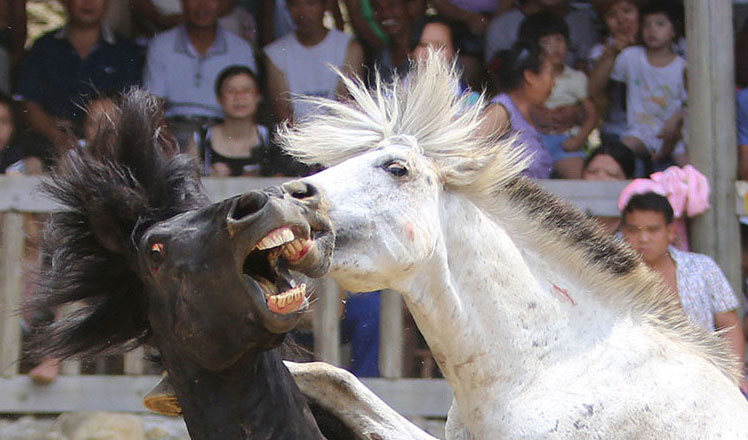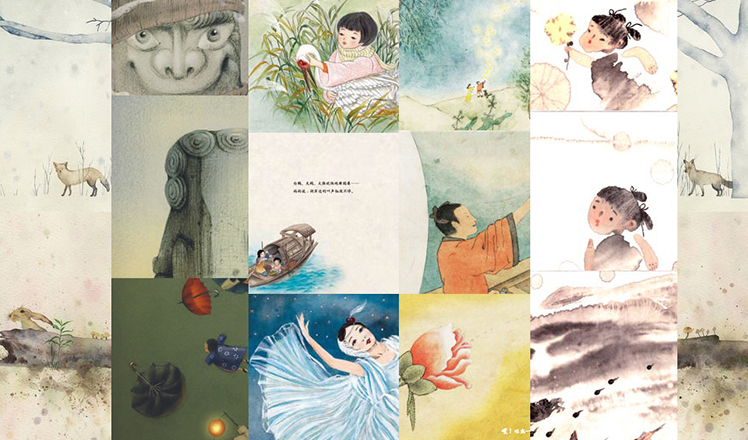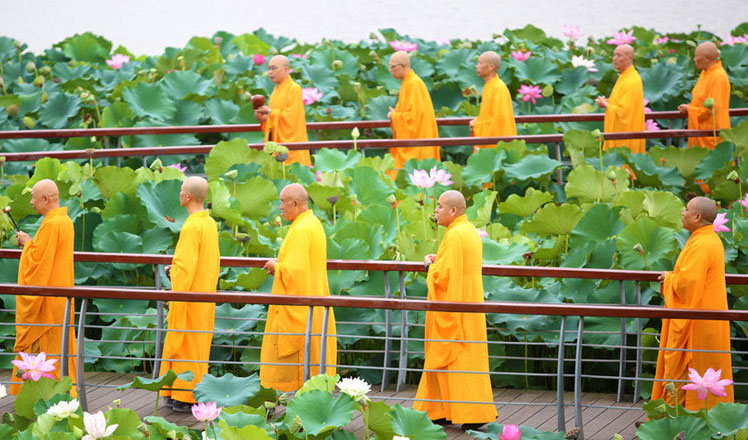Tea brews up myriad health benefits
Updated: 2016-07-16 16:24
(China Daily)
|
||||||||
One should also take into account both the time of year and one's own specific physical condition when choosing which tea to drink. Zhao Yingli, a Beijing-based tea scholar, wrote in his book Wisdom of Tea Drinking that different teas are suitable for different seasons.
Zhao wrote that in spring the chi in the liver needs to rise, and he recommended very aromatic teas for that purpose, such as Fenghuang Dancong, a Guangdong oolong, and jasmine tea. To dispel heat and quench the thirst in summer, green tea is recommended, while one can also try Tieguanyin, a southern Fujian oolong, Taiwan's high-mountain oolong and raw pu'er aged for more than three years. He also recommended northern Fujian's oolong, a strong and aromatic "rock tea", for autumn, and black tea and matured pu'er to warm oneself up in winter.
Green tea and white tea are relatively cold in nature and suitable for those with vigorous constitutions who feel hot all the time. Oolong is medium fermented and ideal for most people. Red tea is relatively warming and is also suitable for those with a weak stomach. Black tea, which is quite warming, is better when aged and can help the body digest grease, especially after eating meat. It is worth noting that, despite the great number of health benefits, regular tea drinkers who like to consume strong teas need to replenish their reserves of calcium and iron, and consume carbohydrates, due to the fact that the organic acid in tea is said to deplete the body's stores of calcium. Some people complain about suffering calf spasms during sleep following heavy tea consumption. In this instance, it is recommended to drink milk or eat beancurd to replenish calcium levels.
Polyphenols are said to be able to react with the iron element in food and cause a shortage of iron in the body. Too much theine in very strong teas such as pu'er and oolong can lower blood sugar levels too quickly and cause weak limbs and even dizziness.
Some people also complain about not being able to sleep after drinking tea in the evening. This is caused by the theine content in tea. However, teas such as black tea and matured pu'er have relatively small amounts of theine due to high-levels of fermentation. As a result, one can drink these teas, even in the evening, to help with digestion and therefore help with sleep.
- 8-year-old boy gains 11kg to save father
- China rebuts claim it sank Vietnamese fishing boat
- China on high alert as floods kill 237
- What I want is a healthy grandson, so I will try anything I can
- China calls on US, Japan to stop twisting the facts
- Girl suffers sibling rivalry disorder after younger brother's birth

 Ten photos from around China: July 8-14
Ten photos from around China: July 8-14
 The only surviving panda triplets weaned from milk
The only surviving panda triplets weaned from milk
 First sea-air emergency drill held near Sansha
First sea-air emergency drill held near Sansha
 Truck attack in Nice as France marks national day
Truck attack in Nice as France marks national day
 Picture Chinese stories: 10 illustration books you can't miss
Picture Chinese stories: 10 illustration books you can't miss
 Theresa May: New Iron Lady in Downing Street
Theresa May: New Iron Lady in Downing Street
 Large amount of sea grass besieges Qingdao
Large amount of sea grass besieges Qingdao
 Monks seek tranquility inside lotus ponds
Monks seek tranquility inside lotus ponds
Most Viewed
Editor's Picks

|

|

|

|

|

|
Today's Top News
Ministry slams US-Korean THAAD deployment
Two police officers shot at protest in Dallas
Abe's blame game reveals his policies failing to get results
Ending wildlife trafficking must be policy priority in Asia
Effects of supply-side reform take time to be seen
Chinese State Councilor Yang Jiechi to meet Kerry
Chinese stocks surge on back of MSCI rumors
Liang avoids jail in shooting death
US Weekly

|

|







